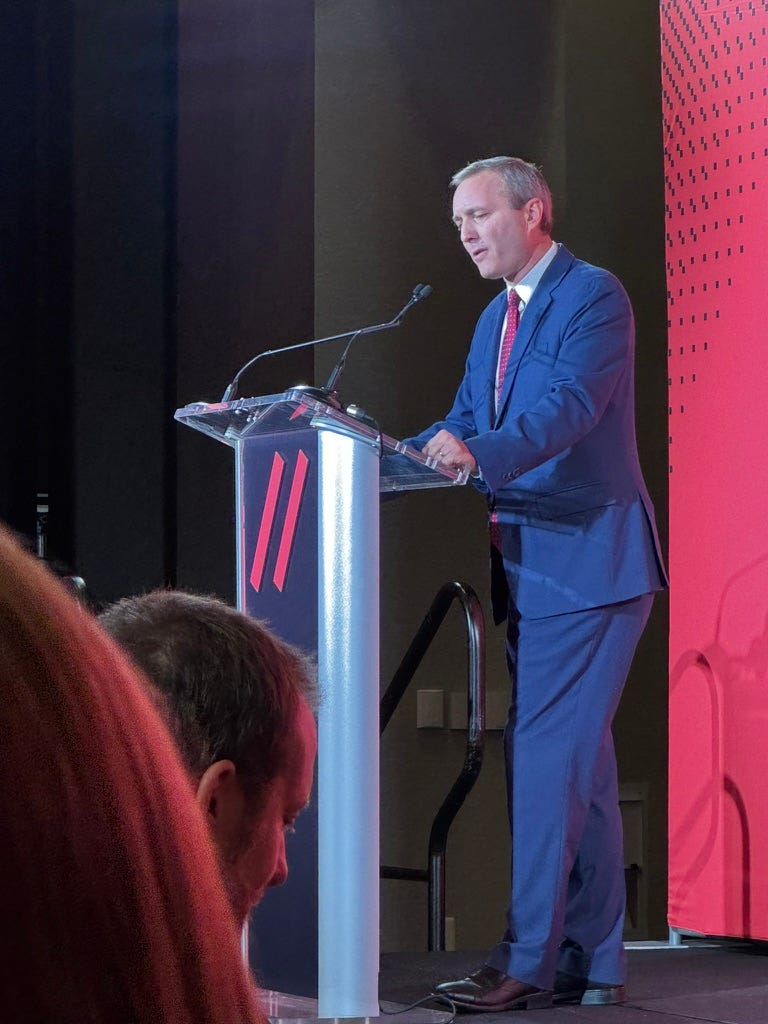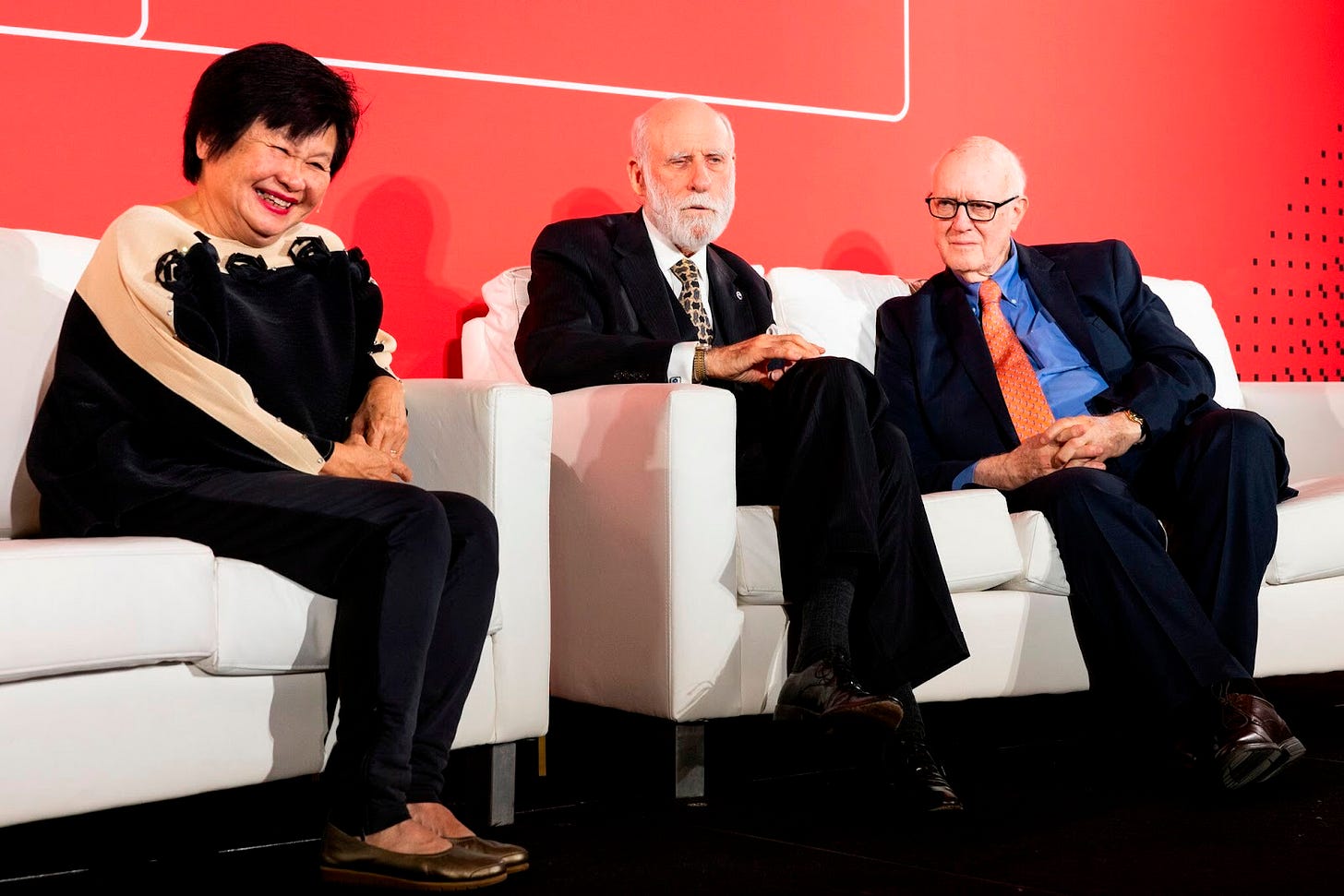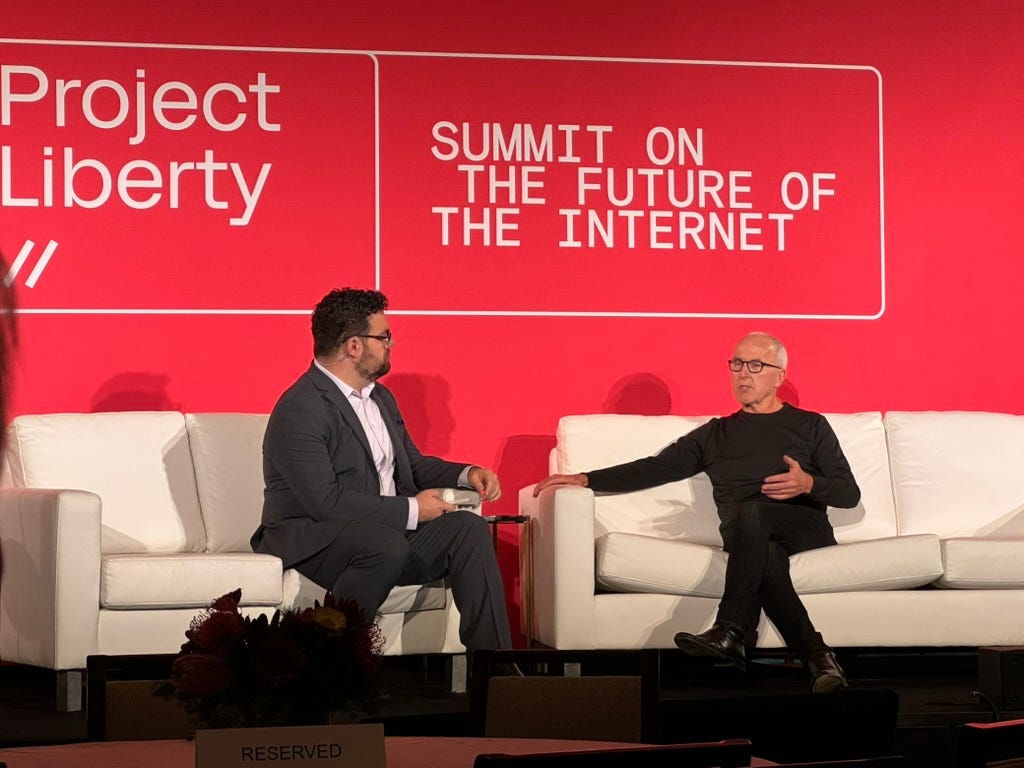Latter-day Saints and the Future of the Internet
A Dispatch
Even as technology enables new wonders, it can also upset the social order. Gutenberg’s invention of the printing press disrupted the Roman Catholic Church’s monopoly over literacy and the interpretation of scripture. As religious narratives multiplied, society struggled to hold together. Co-parishioners, once united by a common covenant, could no longer agree on how to act, or even on what was true.
We now find ourselves at a similar juncture. No longer confined to a vigorous debate from among the narrow options provided by mainstream media, we now have virtually unlimited sources from which to seek news and entertainment. To complicate matters, the most popular ones are engineered to feed us content that maximizes our engagement, preying on our baser instincts. The inevitable side effects of this social engineering have left us alienated from one another and more polarized than ever. Like our sixteenth-century counterparts, we are schismatic; we no longer agree on basic facts about the world. And an organization called Project Liberty, funded by billionaire Frank McCourt, is championing a reformation.
The project held a Summit on the Future of the Internet in Washington, D. C. that was well-attended by diverse stakeholders, including technologists, entrepreneurs, journalists, politicians, activists, and content creators. Several Latter-day Saints were also present: McCourt has entrusted the management of Project Liberty to Tomicah Tillemann (previous head of public policy on blockchain for Haun Ventures), who has tapped Neylan McBaine as the project’s director of interfaith initiatives. I was also invited to participate in a roundtable of faith-based organizations to provide feedback and recommendations at the Summit.
An important part of fixing the web will involve improving the underlying technology it uses, and significant time was spent discussing this at the conference. Several of the old guard shared their perspectives, including Vint Cerf and Steve Crocker, co-inventors of TCP/IP and contributors to Arpanet, tech savant Jaron Lanier, and chief Internet protocol architect Dave Clark. To summarize the technological challenge briefly: while early internet protocols (sometimes referred to as Web 1.0) enabled decentralized media for those who were smart enough to build them, their complexity and limitations drove innovators to provide more convenient services allowing everyday users to participate. These services for user-generated content (Web 2.0) enabled social media, but monopolized network infrastructure, creating perverse incentives that have weakened the social commons. The emerging user-owned web (typically called Web3) will leverage blockchain technology to enable user- and community-owned social media alternatives that facilitate robust social interaction in which stakeholder incentives are properly aligned.
A strategic initiative for Project Liberty is The People's Bid to acquire TikTok, which President Biden recently banned from operating in the US under Chinese ownership. Despite rumors that President-Elect Trump may reverse the ban, McCourt reported at the Summit that he expects the sale to proceed. After the acquisition, Project Liberty intends to upgrade the social media application to run on decentralized publicly-owned protocols. A core protocol in this stack is Decentralized Social Networking Protocol (DSNP), which their engineering team (Project Liberty Labs) is currently developing. This will allow users to choose which kind of content they wish to follow without having their media feed manipulated by any intermediaries. Users will also be able to choose how much of their private information they wish to share with advertisers and to earn money for viewing optional ads.
McCourt also announced a new partnership between Project Liberty and Consensys, a prominent Web3 company and lead development team in the Ethereum ecosystem, which is the most dominant and mature of the next-generation blockchains. This helped alleviate concerns about duplication of effort between Project Liberty and other more mature blockchains. Joe Lubin, CEO of Consensys, was on stage with McCourt to welcome the announcement. Another partnership was announced between Project Liberty and Soar, the latest venture of LDS entrepreneur Paul Allen, which plans to launch several social media applications on DSNP, including a family-oriented app similar to MyFamily.com, which was retired by Ancestry.com several years ago.
In addition to the technology track, there were other tracks covering the pivotal role that a user-owned web will play in the functioning of democracy, as well as the economic opportunities enabled by user privacy and data ownership. Leaders from next-gen social media companies discussed how decentralized protocols will make their networks more healthy, safe, and positive places to engage with other people. Zoe Kalar, founder of WeAre8, compared present-day social media to a town square in which “we almost expect to have rocks thrown at us, and that's almost okay in the town square, if it's not really abusive, but when we go home, we want to be safe. We don't want to have rocks thrown at us in our bedrooms. We want to have the real conversation, the juicy conversation and be able to ask the hard questions. And the abuse, from a social entertainment perspective, has become really boring.”
A memorable moment for me was Jaron Lanier's insightful talk on “Bringing Out the Best in People without Forcing Them.” At one point he shrewdly articulated the disconnect between tech innovators and the DC establishment: “You're laughing, … [but] in my community, in Silicon Valley, this is normative. They think all of you in Washington are just kind of wasting your time waiting for the inevitable that we bring about.” As a tech person myself, I often find myself straddling this divide, wishing that both sides could learn more from each other.
Another poignant moment of candor came from journalist Megan McArdle at the Washington Post, who articulated the desperate need for media reform. She acknowledged that only “four percent of journalists identify as Republicans. . . . And that is a problem. It leaves us blind to a lot of things that are going on and it also tends to focus us on the things that concern us, and then we lose more of those readers. . . . We were so intent on serving one set of views on these issues that we basically just ignored the need to build trust with those readers, and so we were left unable to communicate with them. We completely lost their trust. . . . And now we've lost the independents too. Now we really are just talking to other people who already agree with us. And I think that that's not enough. The media needs to do more than that. We need to be more than that for the nation and for the world.”
It remains to be seen whether Project Liberty will gain significant traction in its attempts to advance Web3 technology. The industry has been making gradual progress despite the opposition of many incumbents, largely due to talented individual contributors with uncommon zeal and relatively little funding. With strong financial support from benefactors like McCourt, several new strategic partnerships, and improving public sentiment towards crypto, we may finally be entering a phase of significant adoption.
As the Internet undergoes this vital transformation, we find members of our faith community playing pivotal roles in shaping its future. Whether through technological innovation, interfaith dialogue, or new applications, these efforts reflect the Latter-day Saint commitment to community building and engagement with the broader world. In this work, we glimpse the potential for technology to unite rather than divide, to uplift rather than exploit.
Carl Youngblood is a software engineer and tech entrepreneur. He is co-founder and current President of the Mormon Transhumanist Association (MTA), a non-profit organization exploring the intersection of science, technology, and religion from a Mormon perspective.







